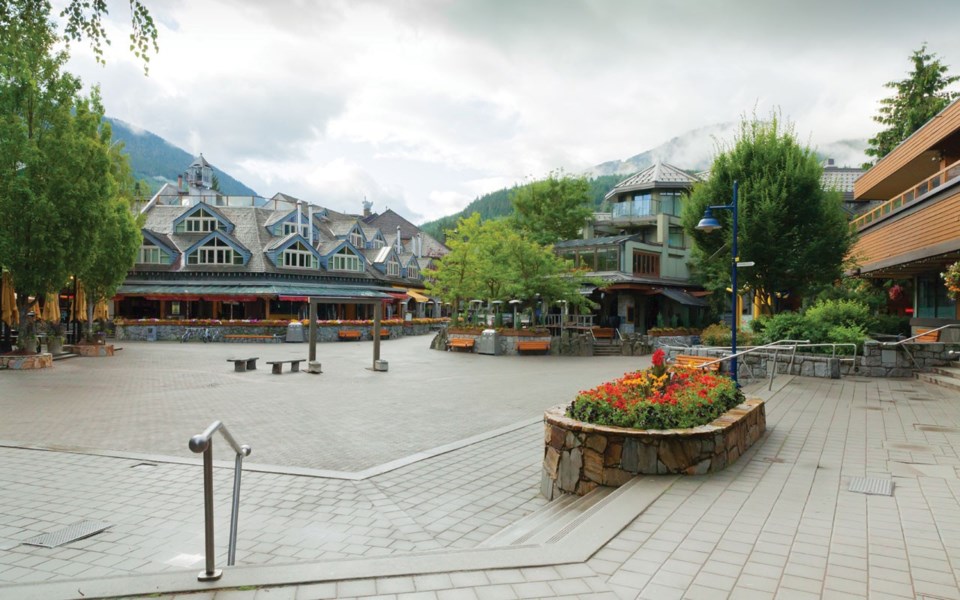Every technologically adept person knows that 99 per cent of IT issues are solved by the good ol' "turn it off, then turn it on again" trick. Sometimes you need to go a bit further by unplugging the device from its power source or wiping the hard drive's memory altogether in order to get anywhere close to the device's original state. That's what the technicians call a "hardware reset," colloquially abbreviated to "hard reset."
As a tourism-driven resort town, Whistler has effectively had its power cord yanked from the wall, cutting off our important lifeline of tourism dollars and causing what is likely the hardest reset we've experienced in our relatively short history of existence as a resort town. Woe is us. We'd all do well to remember there are many people in the world experiencing far worse COVID-19 fallout effects than not being able to recreate semi-recklessly and celebrate at the pub afterwards.
But let's focus on the positive—the best we can anyway. Just like an overloaded computer hard drive deep-sixing and booting from scratch, there's an opportunity for Whistler not only to bounce back, but to renew some of the values that have fallen by the wayside over the last generation or so.
I'm talking about jumpstarting Whistler's mountain culture (a term that has been thrown around a little loosely in recent years). Many lingering locals—as well as those who left in a huff awhile back—will attest that Whistler already lost its mojo some time ago. I wasn't here for the hippy era of Toad Hall or the glory years of the Tyrol Ski and Mountain Club, but even so, I don't want to give up on the larger-than-life Neverland that brought me to Canada when I was a wide-eyed traveller in my early 20s.
Well before The Reckoning of COVID-19, we'd already out-developed, out-priced and out-sourced so much of what made Whistler, Whistler. The regional crowd from down the highway that supported this resort through its growing pains have been slowly and systematically ushered towards visiting mid-week to make room for the coveted six-figure-household-income demographic. This is just one of the directives under the hood of Whistler's marketing. On the surface, we welcome anybody and everybody, despite our collective desire to appeal to visitors that will actually engage with all the cool Whistler activities and experiences. (For more opinion on that sticky subject, read G.D.'s Maxed Out column in the Jan. 9 Pique, "Tackling the tourist we don't want.")
This isn't a bite-the-hands-that-feed-us argument against our aforementioned lifeline of tourism. This is a hand-that-feeds-us-was-amputated-so-how-do-we-feed-ourselves-now argument. Obviously, we need to rekindle our relationship with the regional market, Lower Mainlanders in particular. Remember them? The ones who'd come here to do all the cool Whistler activities and experiences (some of whom signed the petition to "Make Whistler Great Again!")? Now that we've got some reprieve on the horizon coming thanks to B.C.'s Restart Plan, these regional, activity/experience-driven folks need to be made to feel that Whistler is somewhere they belong once more. Not just for the next six months until international destination tourism hopefully gets the green light. It needs to be a long-term relationship this time, not a mid-week booty call.
Our summer festival portfolio the last few years has relied on big-business, guaranteed earners like Tough Mudder, Ironman and Wanderlust, all stops in Whistler on some sort of franchised world tour. When it's safe to host these sorts of things again, we should put our funding and effort into more homegrown cultural events that exude Whistler's badass heritage. GO Fest was a step in the right direction, but without the finale of the Great Snow Earth and Water Race, the May long weekend feels more of a family-friendly deflection against visiting ruffians rather than a flagship spring event. The return of the Saudan Couloir Ski Race Extreme during the World Ski and Snowboard Festival was a home run for an event struggling to keep it about skiing and snowboarding.
We want to make the best of a hard reset, but that doesn't mean we should pander to everyone simply to boost room-night stats and bottom lines. Let's look at how our own community can help fill the gap left by thousands of seasonal workers. Let's invest in our own businesses and cultural endeavours over faceless multinational brands. To our marketing benefactors at Tourism Whistler (and its members): now is the time to take some risks, to think outside the box and shape the Whistler we want to return to.
Vince Shuley was inspired to write this from numerous driveway après conversations. For questions, comments or suggestions for The Outsider, email [email protected] or Instagram @whis_vince.




